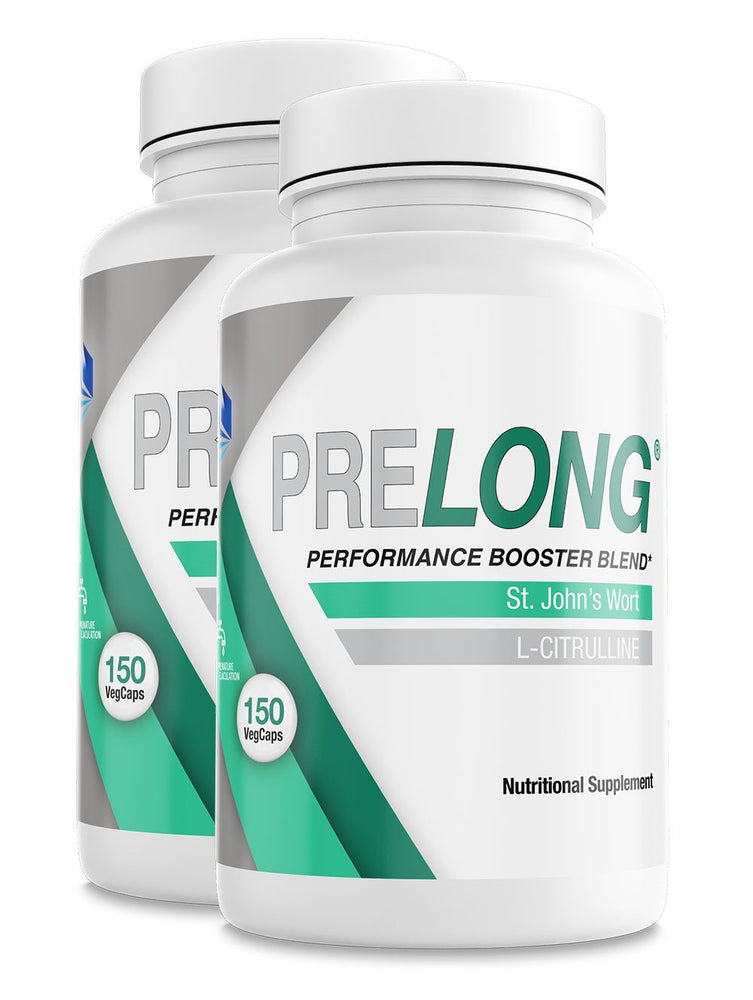When was the last time you had a conversation about sexual health that felt comfortable and straightforward? For many men, premature ejaculation (PE) remains a delicate subject—one that often goes unspoken but silently affects both their emotional well-being and intimate relationships. In fact, recent studies show that one in three men report experiencing premature ejaculation at some point in their lives, making it one of the most common sexual concerns worldwide. But the good news? Premature ejaculation is highly treatable with the right approach. Premature ejaculation occurs when a man reaches orgasm and ejaculates sooner than he—or his partner—would like during sexual intercourse. While this might seem like a simple, isolated issue, it can have profound emotional and relational consequences. Men with PE often experience anxiety, stress, and feelings of inadequacy, which can further exacerbate the condition. Dr. John Berman, a urologist specializing in sexual health, explains, “Premature ejaculation is not just about sexual timing—it’s about the quality of a man’s overall sexual experience, his mental state, and his emotional connection with his partner.” The reasons behind premature ejaculation are multifaceted, often involving a combination of biological, psychological, and emotional factors. Here are some of the most common causes: Psychological factors: Anxiety, stress, or past trauma can significantly affect sexual performance. The pressure to “perform” can trigger premature ejaculation, creating a cycle of fear and frustration. Physical conditions: Health issues such as hormonal imbalances, erectile dysfunction, or pelvic floor disorders can contribute to PE. Overstimulation: Sometimes, excitement or arousal can overwhelm a man, leading to rapid ejaculation. Lack of sexual experience: For younger men or those who lack consistent sexual activity, they may struggle to control their ejaculation due to a lack of experience in handling arousal. While premature ejaculation can feel like an insurmountable challenge, several proven treatments can help men regain control over their sexual health. Let’s take a look at some of the most popular options currently available. The “Stop-Start” Technique: The “Squeeze” Technique: Both techniques require patience and practice but are highly effective over time. According to Dr. Emily Hanlon, a sex therapist, “Incorporating these techniques into sexual activity can help rewire a man’s sexual response, giving him more control in the long run.” There are a variety of medications that are commonly prescribed for premature ejaculation: Selective serotonin reuptake inhibitors (SSRIs): Drugs like dapoxetine (brand name Priligy) are often used off-label to treat PE. These medications help delay ejaculation by increasing serotonin levels in the brain. Studies suggest that SSRIs can improve the time before ejaculation by an average of three to four minutes. Topical anesthetics: Creams or sprays containing lidocaine or prilocaine can be applied to the penis to decrease sensitivity, which can help delay ejaculation. These treatments are fast-acting and can provide relief during intercourse. Tramadol: A pain medication that has been shown to have an off-label benefit in delaying ejaculation. However, it’s typically used for acute instances rather than a long-term solution. Dr. Richard Levine, a urologist, states, “Medication is a quick and effective way to address premature ejaculation, especially for men who need immediate relief or those experiencing significant anxiety.” Since psychological factors like anxiety or depression often play a significant role in PE, therapy can be incredibly beneficial. Cognitive Behavioral Therapy (CBT), for example, helps men address the mental and emotional aspects of sexual performance. Couples therapy can also provide a space for both partners to communicate openly about their sexual experiences, reducing the emotional pressure associated with the condition. According to Dr. Holly Smith, a clinical psychologist, “The goal of therapy is to break the cycle of stress and frustration, fostering better communication and intimacy.” Just like women can benefit from pelvic floor exercises (Kegel exercises), men can also use these to improve control over ejaculation. Strengthening the pelvic floor muscles can help increase muscle tone and endurance, enabling men to last longer during sex. A study published in the Journal of Sexual Medicine showed that men who practiced pelvic floor exercises reported significant improvements in ejaculatory control within just 3–6 months. For men who prefer non-medical treatments, there are several natural approaches that may help improve premature ejaculation: Herbal Supplements: Certain herbs, such as ginseng or ashwagandha, have been traditionally used to support sexual function. These can help with both physical and mental stamina. Dietary Changes: Some men find that increasing their intake of zinc-rich foods like pumpkin seeds, oysters, and spinach can help regulate their testosterone levels, which in turn may improve sexual performance. Mindfulness and Relaxation Techniques: Practicing mindfulness can help men stay calm and in control, reducing performance anxiety. Relaxation techniques like deep breathing and meditation can improve focus and reduce stress, both of which are critical in delaying ejaculation. Innovation in sexual health treatment continues to evolve. In 2024, researchers have begun exploring non-invasive technologies such as shockwave therapy to treat PE. This therapy involves using sound waves to stimulate nerve growth and improve circulation to the penis, ultimately enhancing control over ejaculation. Though these treatments are still in the early stages, they hold promise for men who haven’t found relief through traditional methods. Jason, a 34-year-old from California, struggled with premature ejaculation for years. After trying different medications, including Priligy, he found that combining behavioral techniques with SSRIs helped him improve his control. “I went from lasting a minute to being able to last for up to 20 minutes. The combination of therapy and medication has given me back my confidence and my relationship,” he says. Similarly, Tom, a 40-year-old who had been suffering from anxiety-induced premature ejaculation, reports, “Therapy helped me address the underlying emotional triggers, while medication gave me the control I needed in the moment.” Premature ejaculation may feel like an overwhelming problem, but it is important to remember that you are not alone—and it is treatable. Whether through behavioral techniques, medication, counseling, or lifestyle changes, there are many paths to improvement. With the right support and a comprehensive treatment plan, it is possible to regain control and significantly enhance the quality of your sexual life. If you’ve been struggling with PE, it’s time to consult a healthcare professional who can guide you toward the best treatment options tailored to your specific needs. With patience and persistence, lasting relief is within reach.
What is Premature Ejaculation?
Causes of Premature Ejaculation: Why It Happens
Common Treatment Approaches
1. Behavioral Techniques
This involves pausing sexual activity just before ejaculation to reduce arousal levels, followed by restarting. This cycle can be repeated multiple times to improve control over time.
Similar to the stop-start method, this technique involves squeezing the tip of the penis when the man feels he is about to ejaculate. This action helps reduce the urge and delay orgasm.2. Medications
3. Counseling and Therapy
4. Pelvic Floor Exercises

Natural Remedies and Lifestyle Changes
New and Emerging Treatments
Real-Life Success Stories
Conclusion: You Don’t Have to Suffer in Silence














Be the first commentator